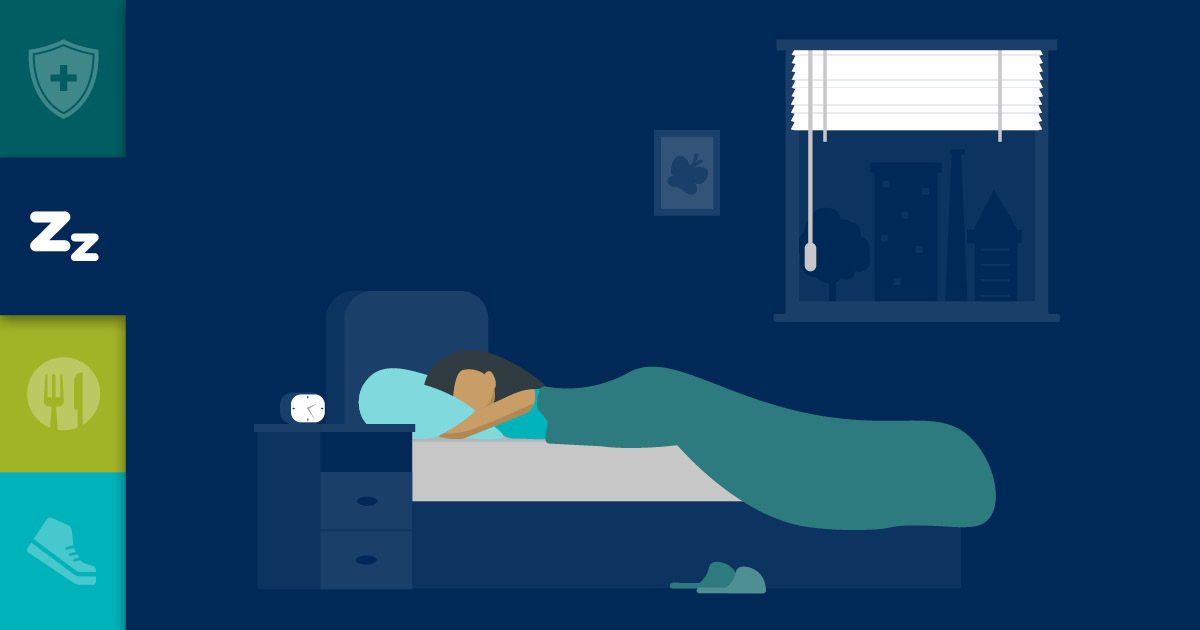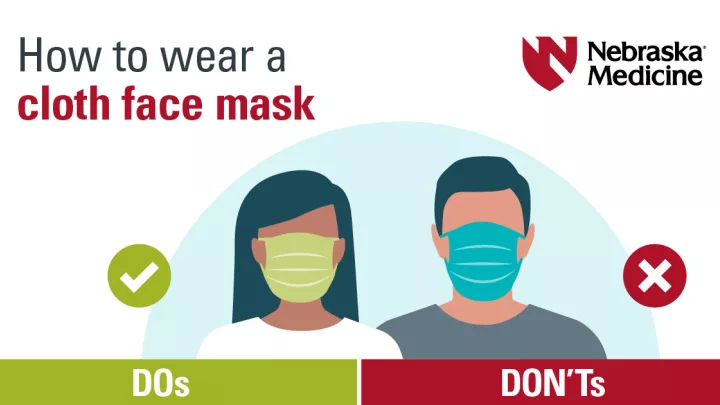Want to support your immune system? Better sleep on it

If you’ve been having trouble sleeping lately, you’re not alone. Schedule changes, shifting finances and anxiety about the world we liv ein have created the perfect storm of sleepless nights everywhere.
As one of the “three pillars of health,” sleep helps support your immune system. Read on for some actionable advice to sleep better – and strengthen your immune system.
Fight RSV, influenza and COVID with sleep
First of all, more sleep does help you fight infections more effectively.
People who get enough sleep (typically between seven and eight and a half hours each night) are much less likely to develop an illness from a virus. Seven-hour sleepers are 300% less likely than five-hour sleepers to develop a viral infection. Sleep also helps you fight disease more effectively.
So, sleep is great for you and your health. But what if you’re having trouble sleeping? Pulmonologist Michael Summers, MD, is a Fellow Member of the American Academy of Sleep Medicine. Dr. Summers shared these sleep tips.
How to sleep better
- Create a relaxation ritual. Take some time to wind down before bed with your own relaxation ritual. Think of it as your “me time.” Maybe you like to journal, meditate, read a book, take a hot bath, listen to music or do some gentle stretching. Minimize conversations (especially social media) during your relaxation ritual.
- Get comfortable. For the best sleep environment, choose quiet and dark. You can filter out unwanted light with blackout curtains or a sleep mask to go over your eyes.
- Use your bed for two things only: sleep and sex. Don’t watch TV, eat, check your phone or study in bed. By using your bed just for sleep, you can train your brain to think of your bed as a sleep zone. The more you limit other activities in bed, the easier it’ll be to fall asleep at night.
What to avoid for better sleep
- Avoid naps. Naps are like snacks. Just like too many snacks spoil your dinner, napping makes it harder to sleep at night.
- Avoid caffeine. Some people are more sensitive to caffeine while others are less so. A good rule of thumb is to avoid caffeine after you eat lunch.
- Avoid strenuous exercise four hours before bed. When you exercise, your body temperature gets higher. That increased temperature signals to your body that you need to be awake. Normally your body temperature gets lower as you’re falling asleep.
- Avoid all screens one hour before bed. The blue light from screens tells your body to decrease melatonin, the sleep chemical, making it harder to fall asleep. Silence or turn off your phone an hour before you intend to go to sleep. It’s especially important in the midst of a pandemic to avoid watching or reading the news before you go to bed.
Can’t sleep? Don’t stay in bed
If you’re worrying in bed about falling asleep, the best thing you can do is leave your bed. You might read a book or magazine – just stay away from any screens. By leaving your bed when you’re not able to sleep, you won’t associate your bed with wakeful worry.
Sleep efficiency is the amount of time you spend asleep in bed compared to the amount of time you’re in bed. So if you’re asleep for six hours but you’re in bed for 10 hours, your sleep efficiency is 60%. Ideally you want your sleep efficiency to be as high as possible. So only spend time in bed if you’re actually sleepy. If you’re wide awake, try a calming activity in another part of your home.
How sleep affects health
Humans are wired to sleep on a regular basis. Without it, your physical, mental and emotional health suffer.
Getting enough sleep:
- Supports your immune system
- Reduces anxiety
- Fights disease
- Increases your focus and energy
- Helps you cope with stress
- Makes you feel less hungry
- Decreases chronic pain
Sleep is the first pillar of health for a strong immune system. Each week, we’re focusing on one of the three pillars to improve your overall health and support your immune system. Next week we’ll discuss nutrition’s role in fighting invaders.






